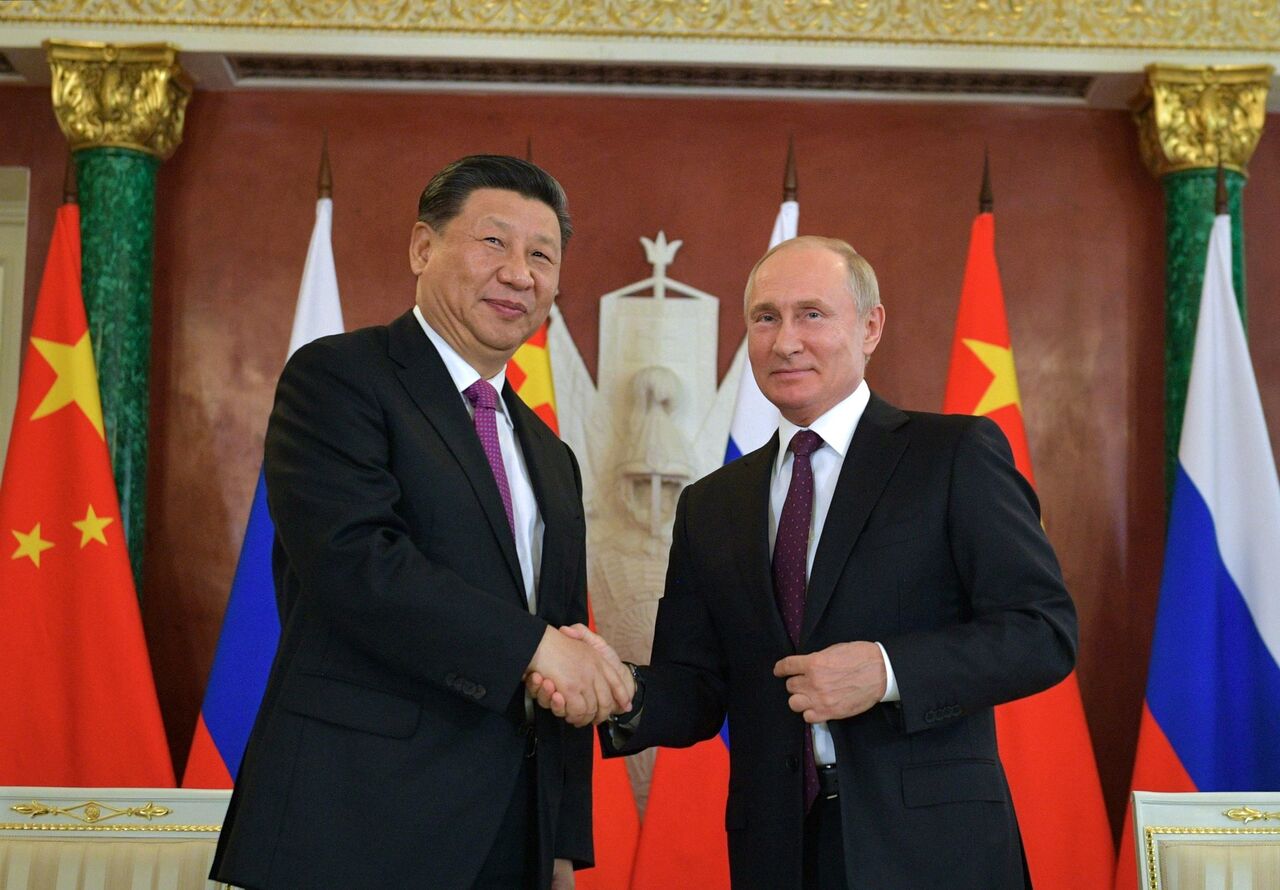Mohammad Javad Ghahremani in an interview with the site of Strategic Council on Foreign Relations stated:” the developments have been accompanied with changes in macro-strategies of the U.S. Amid all this, as the People’s Republic of China enjoys having economic potential along with military and technological advancements, can create main challenges for the U.S.”.
He continued:” Having raised the Asia-focused plan, the U.S. has been looking for promotion and expansion of concentration on Asia-Pacific since the presidency of Barak Obama. The strategy has been pursued during both Trump and Biden’s presidencies”.
On Washington strategy against Beijing and perspective ahead, he explained:” it seems that the present U.S. policy against China is depicting a gap based on which interaction with China may turn the country into a responsible activist or integrate her into the liberal order. The gap has been coupled with increased strictness against Beijing. As if the trend of the U.S. attitude is scrutinized within the past recent years, one may realize that exerting pressure on China has been increased at different political, economic, military, human rights as well as other fields”.
Ghahremani continued to add:” Within the past several months, the level of tension between the U.S. and China has been obviously elevated particularly at the peripheral regions of China, in a way that one can say a miscalculation may lead to a military encounter between the parties”.
In another part of his analysis, Ghahremani dealt with the relations between Moscow and Washington and said:” on the other hand, the relations between the U.S. and Russia have been accompanied with many tensions, the turning point of which was Ukraine crisis followed by divergence and widening gap between the two countries. In the text of the U.S. National Security Strategy (NSS) 2018 the issue has been referred to that Russia applies sabotage measures to weaken the credence of the U.S. obligation towards Europe, diminishing trans-Atlantic unity as well as weakening the European governments. The very same issue was dealt with in the temporary NSS of Biden’s Administration which Russia endeavors to boost her global clout. According to the said Strategy, Beijing and Moscow have made serious investments to curb the U.S. power and prevent the U.S. to defend her interests as well as her allied throughout the world”.
The expert continued to say that the change in understanding has been coupled with developments in the U.S. foreign policy which will bring about consequences for the Islamic Republic of Iran. He emphasized:” from one hand, one can see the change of doctrine in the U.S. foreign policy, while after September 11, 2001”fighting terrorism” became the overwhelming doctrine in the U.S. foreign policy. But today, we witness the change of the doctrine to “competition among big powers”. As a result, this means the change of concentration on strategic priorities of the U.S”.
He continued:” the change of doctrine is accompanied with the change in geographic concentration in the foreign policy of the country. Thus, contrary to the past two decades, Asia-Pacific will become the limelight of concentration for the U.S. foreign policy. The development will influence the U.S. foreign policy in other regions including the Middle East”.
Ghahremani stated that some effects of the changes in the U.S. foreign policy can be seen even now at international stage. He added:” as an example, American authorities have mentioned concentration on China’s containment as one of the reasons for withdrawal of their military forces from Afghanistan. The same argument can be seen for the decision to withdraw the country’s forces from Iraq”.
The expert of Asia affairs believes that such changes may bring about positive results for the Islamic Republic of Iran. For example, these developments can influence the availability of military option against Iran. Moreover, the Islamic Republic of Iran will face less U.S. presence in her peripheral”.
He emphasized:” in case of the sustainability on the transition period, there is a possibility of less U.S. concentration on Iran. This very issue may leave effect on the considerations of some regional activists against the Islamic Republic of Iran too. However, it is necessary to mention that the U.S. will never completely withdraw from the region; because in pursuing the containment policy of China, at least, the control of energy supply can be a suitable instrument at Washington’s disposal”.
Ghahraemani continued to say:” Along with these positive consequences, it is necessary to mention that there will be a possibility for elevation of competitions among major powers in the region, which reminds the competition among major powers in the 19th century. Of course, it must be noted that it seems unlikely for these countries to have the serious will to challenge the U.S. in the Middle East”.
He added:” in this connection, China can be named as a country that tries to develop her relations not only with Iran but also with her rivals too. In addition, because of their concern about the reduction of the U.S. obligations, regional activists may start new approaches in their foreign policy that never existed before”.
According to the expert of Asia affairs, rapprochement between some Arab countries and the Zionist regime is considered to be among these probable changes. Moreover, these activists may adopt policies such as creating crises in order to pave the ground for the continuity of maximum presence of the U.S. in the region, and or to depict Iran as the main reason of instability in the region, and through this approach affect the attitude of emerging powers of the Middle East towards Iran.










0 Comments